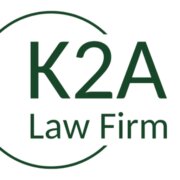Best Employer Lawyers in Greece
Share your needs with us, get contacted by law firms.
Free. Takes 2 min.
Or refine your search by selecting a city:
List of the best lawyers in Greece
About Employer Law in Greece
Employer law in Greece primarily deals with the relationships between employers, employees, and labor unions. It encompasses a wide array of topics such as employment contracts, working conditions, wages, benefits, termination procedures, anti-discrimination practices, and employee rights. The framework for employer law in Greece is largely influenced by both national legislation and European Union directives, providing a comprehensive approach to employment-related issues. Understanding these laws is crucial for both employers and employees in ensuring a fair, safe, and legally compliant work environment.
Why You May Need a Lawyer
There are several instances where legal assistance might be necessary in the realm of employer law in Greece. These include:
- Drafting and reviewing employment contracts to ensure they comply with current laws.
- Handling disputes related to wrongful termination or unfair labor practices.
- Navigating complex regulations regarding employee benefits and compensation.
- Addressing issues of workplace discrimination and harassment.
- Advising on compliance with health and safety regulations.
- Assisting in collective bargaining negotiations with labor unions.
In these and other situations, an experienced employment lawyer can provide invaluable guidance and representation.
Local Laws Overview
The legal framework surrounding employer obligations in Greece is primarily influenced by the Greek Labor Code, the Constitution, and EU directives. Key aspects include:
- Employment Contracts: Must be clear and specify the terms of employment, including job role, salary, and duration.
- Working Hours and Overtime: Generally capped at 40 hours per week, with legal provisions for overtime pay.
- Minimum Wage: Set by national legislation and periodically reviewed in accordance with inflation and economic conditions.
- Termination of Employment: Laws protect employees from unlawful dismissals, requiring a valid reason and, in many cases, severance pay.
- Employee Rights: Focuses heavily on anti-discrimination and equal treatment, protecting employees from biases based on gender, age, religion, or disability.
- Health and Safety Regulations: Employers must ensure a safe working environment, adhering to national and EU safety standards.
Frequently Asked Questions
What are the basic employment rights in Greece?
Employees are entitled to various rights, including fair wages, safe working conditions, protection against discrimination, and the right to form or join trade unions.
How is overtime pay calculated in Greece?
Overtime work is compensated with a minimum premium on top of the regular wage. The exact percentage varies depending on the number of overtime hours worked.
Can an employer terminate an employee's contract at any time?
No, terminations must be justified with valid reasons and must comply with applicable notice periods and severance pay requirements.
What is the notice period for terminating an employment contract?
The notice period varies based on the length of employment, ranging from no notice for probationary periods to several months for long-term employees.
How are disputes between employers and employees resolved?
Disputes can be addressed through negotiation, mediation, or formal legal proceedings in the labor courts.
Is there a legal obligation to provide employee benefits?
Yes, employers must provide certain mandatory benefits, such as social security contributions, health insurance, and paid leave entitlements.
What constitutes workplace discrimination in Greece?
Any unfavorable treatment based on race, gender, religion, age, disability, or other prohibited grounds is considered discrimination.
How can employees report inappropriate conduct at work?
Employees can report inappropriate behavior through internal grievance mechanisms or by filing a complaint with the relevant labor authorities.
What are the regulations for remote work?
Remote work is subject to specific regulations concerning working hours, health and safety, and data protection.
How does collective bargaining work in Greece?
Collective bargaining involves negotiations between employers and labor unions to establish terms of employment, including wages, working hours, and other conditions.
Additional Resources
For more information on employer law in Greece, consider consulting the following resources:
- Ministry of Labor and Social Affairs: Provides updates on labor laws and regulations.
- Greek General Confederation of Labor (GSEE): Offers support for workers and represents employees in labor discussions.
- European Employment Services (EURES): A valuable resource for employment issues and advice across Europe.
- Local labor law firms: These can provide personalized legal assistance specific to employer law.
Next Steps
If you require legal assistance in employer law, consider the following steps:
- Consult with a lawyer who specializes in Greek employment law for personalized advice.
- Gather all necessary documentation related to your employment situation, such as contracts, payslips, and correspondence.
- Prepare to discuss the specifics of your situation openly and honestly with your legal advisor.
- Explore mediation or alternative dispute resolution methods if direct legal action can be avoided.
Professional legal help can ensure that you navigate employer-related legal issues effectively and in compliance with Greek law.
Lawzana helps you find the best lawyers and law firms in Greece through a curated and pre-screened list of qualified legal professionals. Our platform offers rankings and detailed profiles of attorneys and law firms, allowing you to compare based on practice areas, including Employer, experience, and client feedback.
Each profile includes a description of the firm's areas of practice, client reviews, team members and partners, year of establishment, spoken languages, office locations, contact information, social media presence, and any published articles or resources. Most firms on our platform speak English and are experienced in both local and international legal matters.
Get a quote from top-rated law firms in Greece — quickly, securely, and without unnecessary hassle.
Disclaimer:
The information provided on this page is for general informational purposes only and does not constitute legal advice. While we strive to ensure the accuracy and relevance of the content, legal information may change over time, and interpretations of the law can vary. You should always consult with a qualified legal professional for advice specific to your situation.
We disclaim all liability for actions taken or not taken based on the content of this page. If you believe any information is incorrect or outdated, please contact us, and we will review and update it where appropriate.
Browse employer law firms by city in Greece
Refine your search by selecting a city.
















